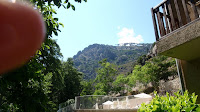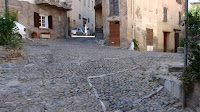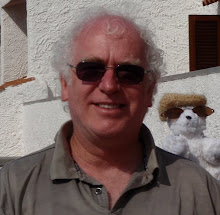
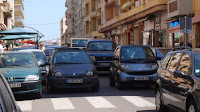

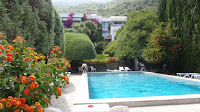






Immediately after the 1372 Corsican rebellion, the Genoese built a "bastiglia" (bastion) to establish a strong base and safe haven in case another rebellion broke out. This was how Bastia was founded. ...nothing more than a fort overlooking local fishing hamlets. Giovanni Bonaparte was summoned from Italy in 1479 to build a citadel around the bastion and the port flourished well into the 17th century. It was the Genoese capital of Corsica until the Corsican hero, Pasquale Paoli moved the capital to Corte in 1750. The French moved the capital back to Bastia and Nelson retained the capital here when he took it for the English in 1794. Bastia lost its status as capital of Corsica in 1811, when Napolean named his home town of Ajaccio as capital. At the moment, Bastia is the biggest city in Corsica. If the Corsicans ever do gain independence from France, the choice of their capital is probably going to be a controversial subject. We arrived in Bastia after an easy 2 hour ride from Corte this morning. The Corsican roads are in excellent condition even if they are sometimes impossibly narrow, but the drivers here maintain reasonable speeds and decent forms of courtesy. When we asked the lady at our hotel where the Hertz office is located so that we could return our car, she said, "c'est pas complique". Simply said, but not so easily implemented. The roads are tight, doubling parking on every street...cars parked in intersections and on sidewalks, pedestrians and moving cars, buses, trucks and ambulances made it an interesting adventure going from one part of the tightly wound streets of the centreville asking for directions..."c'est pas complique". By God's grace and Michele's eagle eyes, we somehow managed to find the Hertz office, and were happy to be rid of our car which served us well but which was ill-suited for life in Bastia. Bastia is a walking town, and within 2 minutes of thE Hertz office we were sitting having a morning coffee and snack, and within another 2 minutes we were at the dock office of the ferry where we purchased our tickets to Livorno for the 18th of June. Bought some groceries and came back to the hotel where we made ourselves the best lunch yet on our balcony overlooking the sea while we watched the unfortunate drama of the abandonment of a small boat on fire. After lunch we flaked out at the pool until the sun set behind the hills.

















































